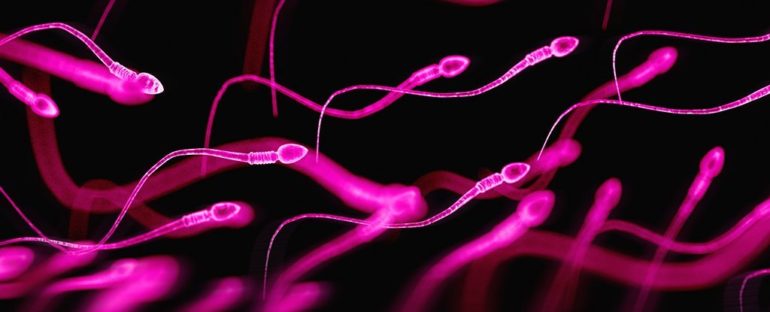Beyond COVID-19’s gruesome death toll lies a litany of medical conditions researchers are still just starting to uncover. One potential concern demanding closer scrutiny is the virus‘s impact on male fertility.
Scientists have suspected for some time that the novel SARS virus has the potential to wreak havoc with sperm counts. A review of the state of research, along with strong new evidence, emphasises the need to monitor men’s reproductive systems as vulnerable routes for coronavirus infection.
Researchers from the Huazhong University of Science and Technology in Wuhan, China conducted an analysis of existing reports on possible mechanisms SARS-CoV-2 might employ to interfere with male reproduction.
While they couldn’t state with confidence there was a clear reduction in fertility, they warned there was every reason to pay close attention to the possibility.
“We propose that there is an urgent need to track male COVID-19 patients during their recovery,” microbiologist Yu Tian and reproductive biologist Li-quan Zhou argue in their report.
Medical researchers have become intimately familiar with the way SARS-CoV-2 slips into our bodies and promotes a flurry of destructive immune responses.
Central to its break-and-enter strategy is a common cell receptor called angiotensin-converting enzyme 2, or ACE2. Wherever the body makes use of this enzyme, it’s a sound bet SARS-CoV-2 will leave its mark, putting multiple organs at risk.
This means the virus not only affects our olfactory and respiratory system, but can impact our digestive system, leave our circulatory system weakened, and even spark inflammatory responses deep inside our brain.
The fact tissue inside the testes is just one more potential target hasn’t been lost on researchers. Early studies finding presence of the virus in semen samples added to the growing need to investigate.
But findings haven’t exactly been consistent. Past research carried out on SARS-CoV-2’s predecessor, SARS-CoV-1, also tended to dismiss serious concerns that the testes were vulnerable, with most studies failing to find any trace of the virus inside its tissues.
Now, however, the weight of evidence appears now to be tipping well in favour of arguments that testicular tissue is commonly being damaged as a direct result of COVID.
A recently published longitudinal investigation conducted by researchers from Justus-Liebig-University in Germany and Allameh Tabataba’i University in Iran reports direct experimental evidence of just such damage.
Their study looked instead at inflammation markers in samples of tissue from 84 men diagnosed with COVID-19, alongside 105 controls. They also evaluated sperm quality and searched for signs of oxidative stress in the samples.
It was clear having COVID-19 made at least some difference, with inflammation and cellular stress appearing twice as severe in those who’d been diagnosed as positive for the virus, compared with those who hadn’t.
What’s more, the sperm of men who’d been infected were roughly three times as slow, and their sperm counts were far lower as well.
“These effects on sperm cells are associated with lower sperm quality and reduced fertility potential,” says lead researcher Behzad Hajizadeh Maleki, a sports scientist from Justus-Liebig-University.
“Although these effects tended to improve over time, they remained significantly and abnormally higher in the COVID-19 patients, and the magnitude of these changes were also related to disease severity.”
What this means for men recovering from a SARS-CoV-2 infection isn’t clear, especially in the long term. Authors of both the review and the experimental study call for more research before making a call on how – or even whether – the decreased fertility will have any real impact on efforts to conceive.
Yet, with many nations around the globe already facing a mounting fertility crisis that promises to curb population growth in the future, COVID-19 could be another hurdle to overcome.
Hopes are pinned on vaccines putting an end to the worst of the pandemic in the near future. But even if our best efforts prevail, the scars of the coronavirus will be left on our bodies and our population for a long time to come.
This research was published in Reproduction, here and here.



